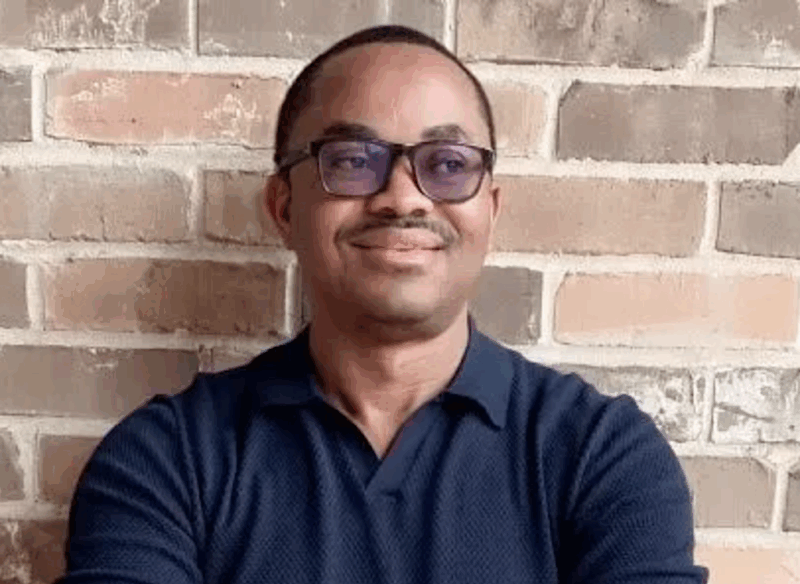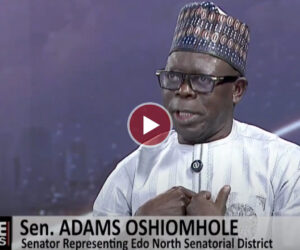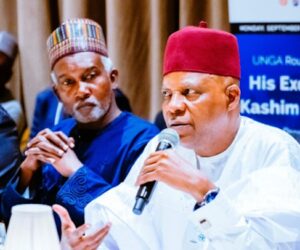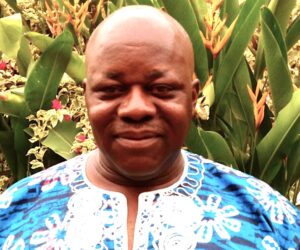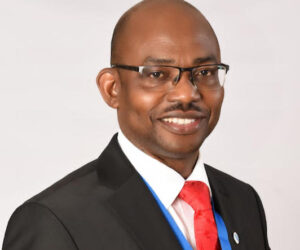
Power ultimately resides in the people. But when the people grow timid in wielding it, tyrants flourish and endurance is mistaken for virtue. Until that changes, the myth will persist, and the “indispensable men” will continue their reigns, growing ever older in their palaces, while the nations they govern remain shackled in perpetual underdevelopment.
I was minding my own business, staring dismally at Delta’s underwhelming low-budget jollof rice and resigned to the dreary choice between chicken and fish, when a man, leaning forward from the row behind, tapped me on the shoulder.
Apparently, he had just been locked in a spirited argument with another passenger, both of them young men, perhaps in their late thirties, their voices carrying the heat of unresolved political conviction.
“Bruh, who do you think will win the next presidential election — Peter Obi, right?” he asked, speaking with a half-American accent.
“Tinubu,” I responded, without lifting my eyes.
He stiffened, and a shadow shot across his face. There was no mistaking that he was one of those die-hard Peter Obi fans; it radiated in the fervour in his eyes. From the timbre of his voice, it was clear he had already rendered his verdict long ago. Bruh wasn’t asking for my opinion, he was hunting for my affirmation.
It was clear to me I had some convincing to do. I explained, perhaps to his dismay, that even if Jesus Christ Himself descended to contest Nigeria’s 2027 presidential election, He would stand no chance of unseating Bola Ahmed Tinubu. This has nothing to do with BAT’s popularity or any superlative performance, and everything to do with the grim reality that this administration has, in toto, captured every arm of the State, including the electoral commission (INEC). It has also meticulously reengineered the rules to secure its perpetuation.
Meanwhile, as we conversed in the cavernous belly of the Boeing Dreamliner, somewhere above the Atlantic coast of West Africa, the streets were heaving with protests. Ivorians had erupted in anger over the exclusion of opposition leaders from the upcoming presidential contest. Yes, the country of Didier Drogba and Yaya Touré, those two world-class footballers we admire so much, was restive.
Yet, the huge Elephant in the room was the looming prospect of their 83-year-old president, Alassane Ouattara, seeking a fourth term after 15 years in power. By any global democratic standard, this is an astonishingly long reign. But in the African context, particularly in West and Central Africa, Ouattara is far from being the marathon man of power.
Travel just over 2,000 kilometres northeast to Cameroon and the spectacle turns surreal. There, a 92-year-old Paul Biya, the world’s oldest serving head of state, has declared his candidacy for an eighth term in October’s presidential election. Biya has ruled since 1982. Should he prevail again, he could remain in office well into his centenary. His announcement, broadcast in French and English on X, claimed that his “determination to serve matches the urgency of the challenges we face.” The words have the veneer of nobility, but they collapse under the weight of four decades of authoritarian entrenchment, economic inertia, and endemic corruption.
Yet, the most troubling aspect of this political tragedy lies not merely in the obstinacy of these leaders or the avarice of their inner circles, but in the acquiescence of those they govern. Unlike the Arab Spring, when citizens risked life and limb to dismantle autocracies, much of Africa’s disaffected youth, though seething with discontent, has been hesitant or unable to forge a credible, sustained resistance. In some instances, the very victims of tyranny become its most ardent apologists.
Biya’s health has long been a subject of whispered speculation, especially following his mysterious 42-day disappearance from public view last year. There was also the infamous incident in which he appeared visibly disoriented and, according to some accounts, suffered a humiliating lapse in bodily control. Yet, these unmistakable signs of decline have not dislodged him from the apex of power. Why? Because he is encircled by a coterie of political vultures, men and women whose fortunes, immunities, and privileges are tethered to his continued reign. For them, the leader’s survival is synonymous with their own.
Cameroon is hardly alone. Across Africa, from east to west, north to south, the story repeats itself with mind-numbing familiarity. In Equatorial Guinea, Teodoro Obiang Nguema Mbasogo has been in power for 42 years. In the Republic of Congo (Brazzaville), Denis Sassou Nguesso has ruled for 39 years. Uganda’s Yoweri Museveni has also clung to the presidency for 39 years. And in Togo, Faure Gnassingbé has been in charge for two decades, having inherited the presidency from his father, who ruled for an incredible 38 years.
To achieve such political longevity, these leaders have mastered a dark art; crashing constitutions, rewriting electoral laws, and crushing the opposition with surgical precision. In Nigeria, as I write this, the EFCC has just opened investigations on Sokoto State Governor Aminu Tambuwal, former Imo State Governor Emeka Ihedioha, and former Senate President David Mark, three prominent figures in the emerging opposition alliance known as the ADC. We are told, of course, that it has nothing to do with their political affiliations. The EFCC spokesperson described the investigations as “urgent,” despite these officials having left office years ago.
Constitutional term limits are amended or scrapped entirely. Electoral commissions, instead of acting as impartial referees, are reduced to obedient instruments of the ruling party. In such environments, it is not uncommon to see opposition leaders harassed, jailed, or barred from contesting. The press is muzzled, and civil society organisations are either infiltrated or throttled with bureaucratic red tape. The result is a political climate in which the incumbent is never truly challenged, and the people’s will is smothered before it can even be expressed.
Yet, the most troubling aspect of this political tragedy lies not merely in the obstinacy of these leaders or the avarice of their inner circles, but in the acquiescence of those they govern. Unlike the Arab Spring, when citizens risked life and limb to dismantle autocracies, much of Africa’s disaffected youth, though seething with discontent, has been hesitant or unable to forge a credible, sustained resistance. In some instances, the very victims of tyranny become its most ardent apologists. Ethnic loyalties, sectarian bonds, and tribal allegiances blur the vision of entire electorates. A president who shares one’s ancestry or creed is transfigured into a secular saint; his corruption rationalised, his incompetence excused.
This is why the old saying, “Every nation gets the leadership it deserves,” hits painfully close to home. Leadership in these contexts is not simply imposed; it is also permitted. It thrives not only on the manipulation of the powerful but also on the passivity or misplaced loyalty of the powerless.
Returning to my “Obidient” co-passenger: the unpalatable reality is that in Nigeria, institutional checks and balances, the very scaffolding of democracy, are now a mirage. The judiciary, legislature, police, and electoral body have been reduced to instruments of regime entrenchment. The only force that could realistically disrupt this entrenched order is fear on the part of those in power, of mass, unpredictable, and potentially violent public backlash.
The costs are ruinous. Roads collapse into dust; hospitals and schools wither from neglect. Economies stagnate, not for lack of resources, but because graft siphons away the arteries of growth. Africa’s youth, brimming with talent, flee in droves, risking and often losing their lives in the Sahara or the Mediterranean in search of dignity elsewhere. The cycle of decay endures because those who could break it remain silent, co-opted, or are too fractured to stand together.
The myth of the indispensable man, the idea that one individual is uniquely capable of leading a nation, has been one of Africa’s most enduring and damaging illusions. It is a myth that has propped up tyrants, enabled corruption, and delayed progress for decades. The truth is stark: no man is indispensable. Nations outlive individuals, and progress is made not by the cult of personality but by the strength of institutions and the collective will of the people. Until this lesson is embraced, the continent will remain trapped in a loop, watching the same political drama play out, just with older actors each time.
Africa’s emancipation from this cycle will not arrive through the magnanimity of its rulers. It will come only when its citizens, especially its young, decide that the masquerade has gone on long enough; when they organise, resist, and demand governance that serves the many, not the few.
Returning to my “Obidient” co-passenger: the unpalatable reality is that in Nigeria, institutional checks and balances, the very scaffolding of democracy, are now a mirage. The judiciary, legislature, police, and electoral body have been reduced to instruments of regime entrenchment. The only force that could realistically disrupt this entrenched order is fear on the part of those in power, of mass, unpredictable, and potentially violent public backlash.
Of course, violence is not a prescription but it is an observation of history’s harsh truth: tyrants rarely step aside in response to polite constitutional reminders. As the saying goes, “Don’t blame the clown for being a clown; blame yourself for going to the circus.” Or, as the Arabic proverb starkly declares: “They asked the Pharaoh, what made you a tyrant? He said: No one stopped me.”
Power ultimately resides in the people. But when the people grow timid in wielding it, tyrants flourish and endurance is mistaken for virtue. Until that changes, the myth will persist, and the “indispensable men” will continue their reigns, growing ever older in their palaces, while the nations they govern remain shackled in perpetual underdevelopment.
Osmund Agbo is a US-based medical doctor and author. His works include Black Grit, White Knuckles: The Philosophy of Black Renaissance and a fiction work titled The Velvet Court: Courtesan Chronicles. His latest works, Pray, Let the Shaman Die and Ma’am, I Do Not Come to You for Love, have just been released. He can be reached@ [email protected]

